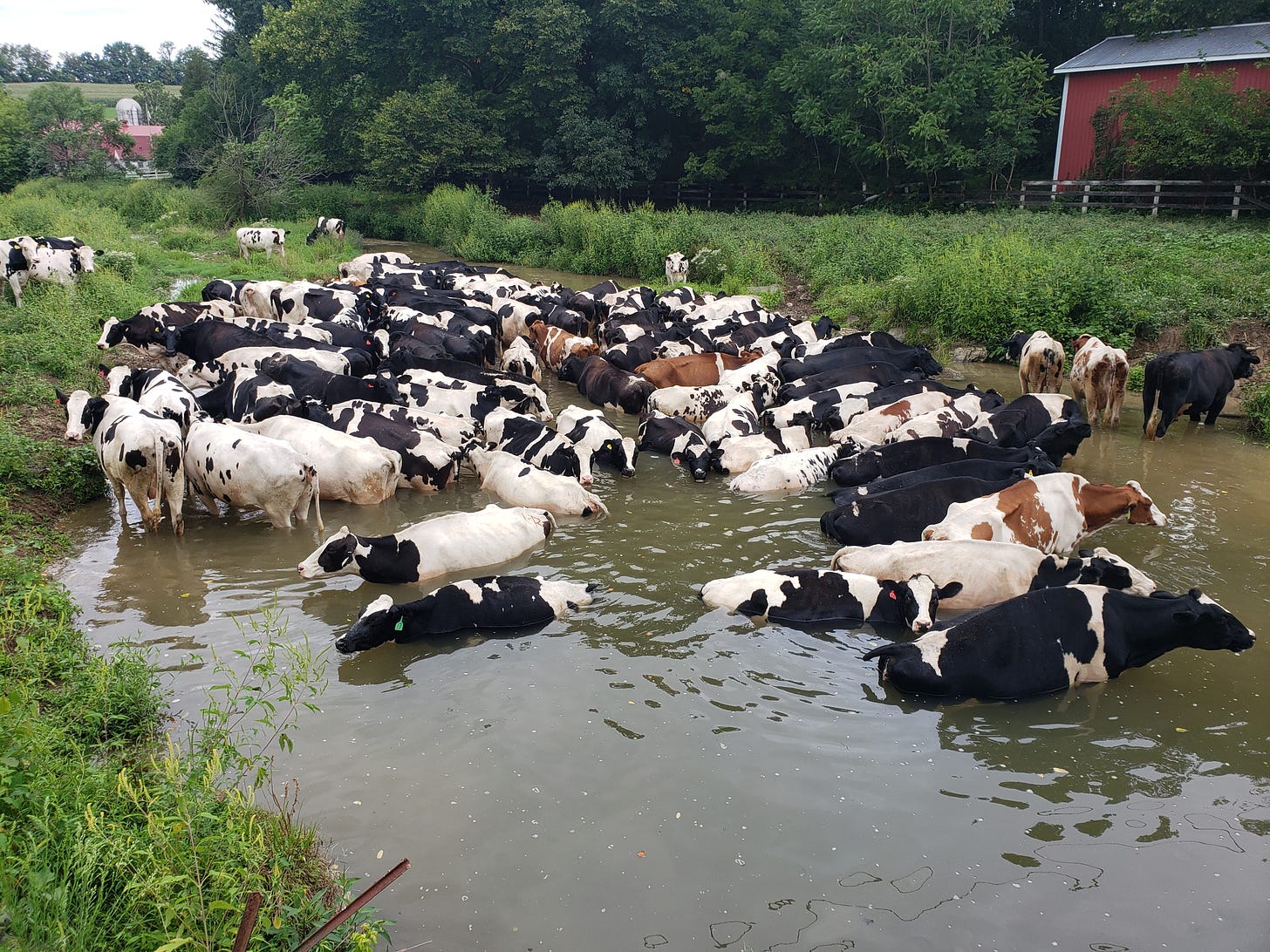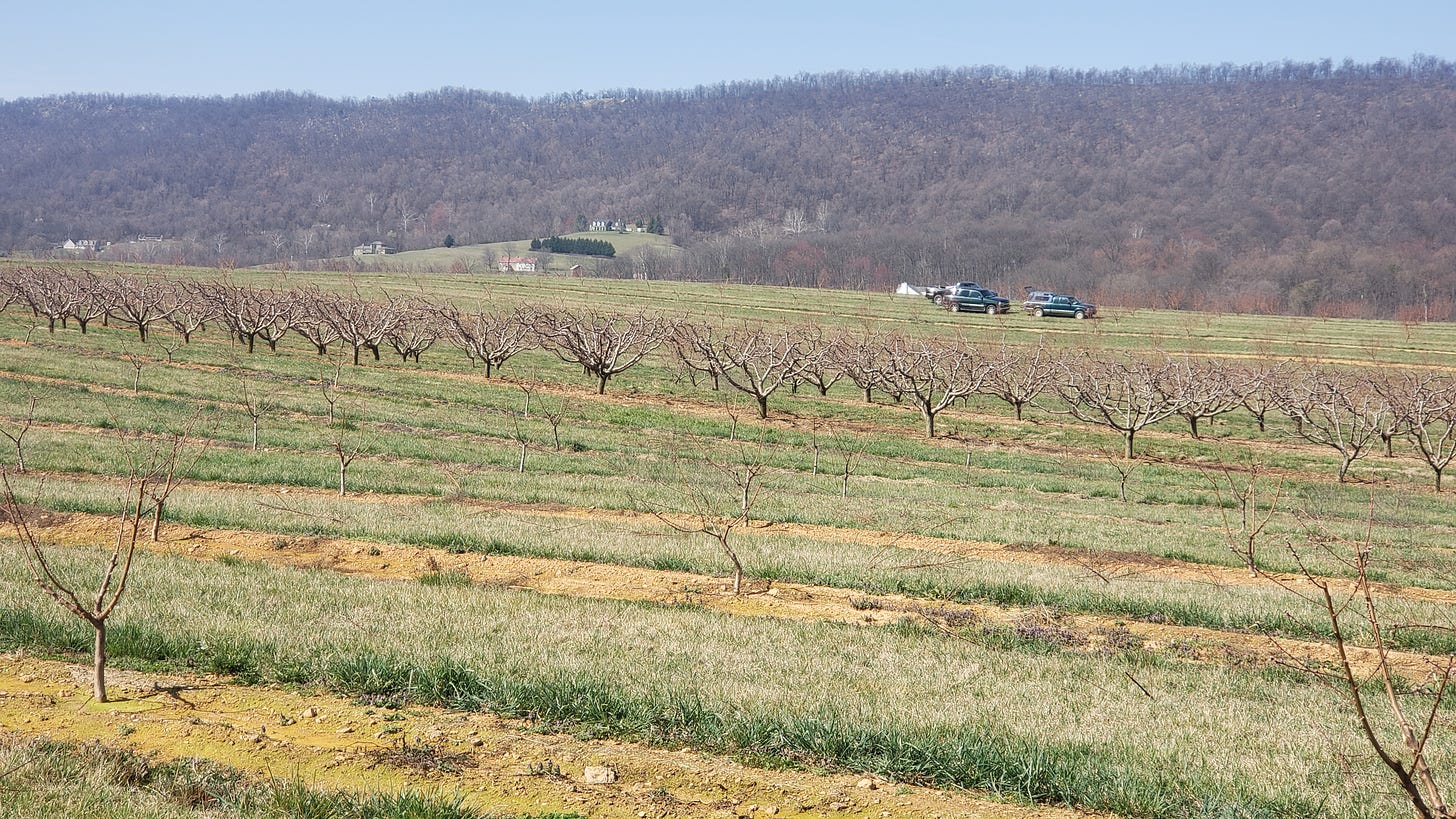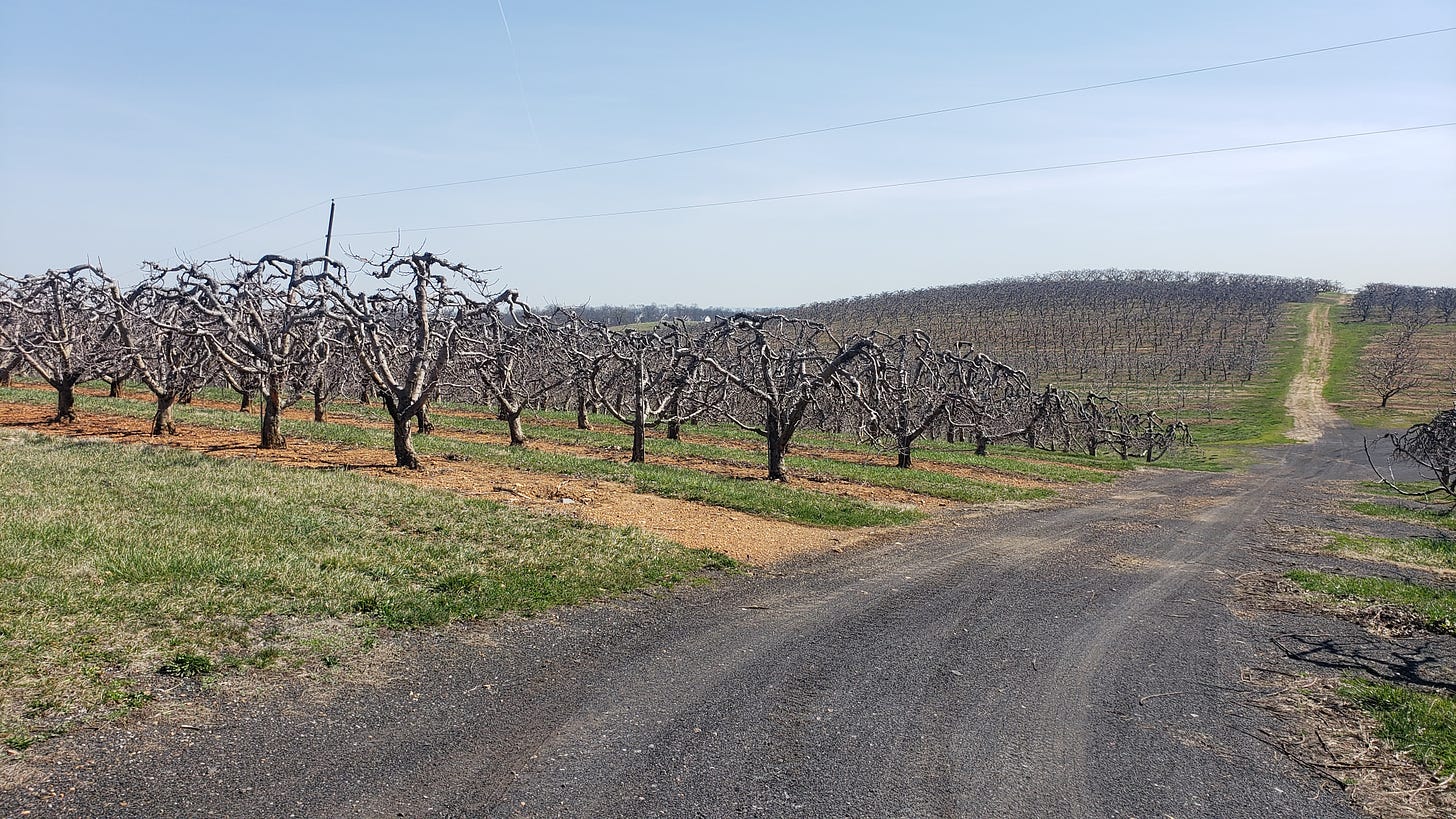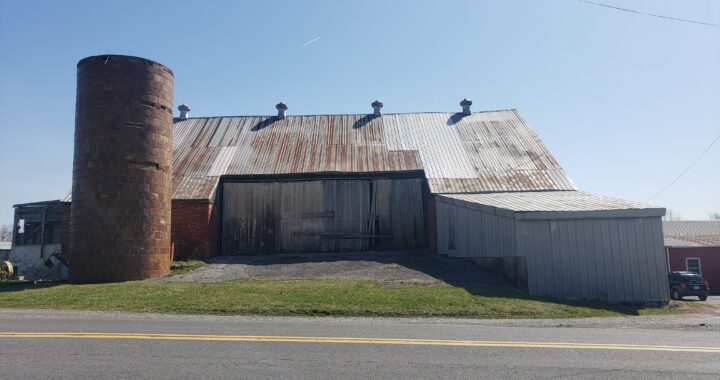The Beauty of Living in a Safe Rural Area
Ever since I discovered the wonder of Civil Defense at 27 in doing contract work reviewing Emergency Operations Plans (EOPs) and inspecting county Emergency Operations Centers (EOCs) all over the United States and teaching emergency managers for the Federal Emergency Management Agency, I have been fascinated by how critical it is to this nation’s survival.
Civil defense is a life-long intellectual pursuit that involves a constant learning curve because it touches so many human relationships, knowledge, skill, and experience areas. For example, you may not think the decision to move from a crime laden city to a safe rural area is a civil rights issue…but it is…oh it is. Here we will explore that decision from a civil defense perspective.
Outmigration from American Cities to the American Countryside
There is a massive outmigration from American cities to the American countryside at present. There are many reasons for this trend, including:

- Remote work that first became popular due to the Covid-19 shutdowns has continued to be popular with American workers.
- Tens of millions of illegal aliens, many from prisons and mental hospitals from Venezuela and 172 other countries are invading the U.S. and being released into the U.S., which is forcing people to flee “sanctuary” cities and suburbs
- The exponential increase in major crime (drug use, murder, rape, armed robbery, etc.) in American cities due to defunding the police, district attorney’s not prosecuting crime but releasing hardened criminals back onto the streets, often the same day, and the drug and crime tent homeless encampments. Just recently the Pittsburg Police Chief announced he could only spare 20 officers to patrol the entire city at night. That will end well.
- The ever-increasing risk of nuclear war due to the U.S. not being prepared for it and China, Russia, North Korea, and Iran being prepared for it and coordinating actions against the U.S. to win it. To view a nuclear blast zone map to see if your house is in a blast zone, see the Nuke Map. Hint: You are highly vulnerable to nuclear attack in the city, not so much in a rural area.
Since the plandemic in 2020, many Americans are taking advantage of the opportunity to find a place they want to and can afford to live, regardless of where their employer’s office may be. For example, a recent study called The New Geography of Remote Work, had this to say:
“Upwork, the go-to platform for freelance workers, released a new data report on remote working trends. The massive survey conducted with more than 23,000 people in the United States showed that the greater ability to work remotely is leading to new migration patterns for Americans. The report found that 9.3% of people—representing 20 million Americans—are planning on moving in the next few years because of remote work.”

The key findings of this survey include:
- Remote work has already sparked moves: 2.4% of people, or approximately 5 million Americans, say that they have already moved because of remote work since 2020.
- More moves to come: 9.3% of people, or 18.9 million Americans, are planning on moving because of remote work, compared to 6.1% in October 2020.
- People are moving outside commutable distances: 28% of people said they are moving more than 4 hours away. Another 13% said they are moving between two- and four-hours away.
- Cities most likely to see people move away will likely meet a few criteria: Areas with both high cost of living and many jobs that can be done remotely such as Atlanta, Los Angeles, New York City, San Francisco, Seattle, etc., are the most likely to experience out-migration.
- The number of people who have relocated is likely just the start of a larger reshuffle, since our data suggests that there are strong reasons to suspect longer-term moves will rise.”

My Family’s Journey from City to Rural
In 2021, as my wife and I watched the dramatic increase in political corruption and serious crime in Maryland where we lived for 38 years, and the subsequent decline in criminal prosecutions and imprisonment, we had a serious discussion about whether we wanted to remain in Maryland where we lived for 38 years and raised our children. My thinking was heavily influenced by knowledge of the civil defense impacts of lawlessness.
One of the pillars of American civil defense is ensuring the safety of American families. Whether it is safety from thermonuclear explosion or murder, every family must make the decision about how to best protect their family and how to plan their move.
For example, my wife and I sold our house in Maryland and lived in a rental farmhouse for a year. This alleviated the pressure to sell and move all at once. It also gave us time to explore and find another area to move to and to make the necessary arrangements.
Originally, we explored rural Pennsylvania, but could not find an adequate house and the taxes were too high. Now, with grandchildren and taking the longer view, we decided to begin to look in West Virginia where she had been raised on her family orchard and that her family still operates.

Due to finding twice the house for half the taxes, our oldest son moved to Harpers Ferry, WV, eight years ago. Given what is going on in the government public schools, he and his wife decided they wanted to homeschool his children. My wife volunteered to homeschool them for two days a week, and this was another good reason to leave the crime and chaos in Maryland and enjoy the tranquility and beauty of the West Virginia mountains.
After many frustrating months of looking every weekend for a good house in a safe neighborhood, my wife saw a small road sign advertising 1200 wood planer tools for sale. “If they are selling tools, maybe a house is for sale.”
We turned in and the owner informed us that, yes, the reason the tools were for sale is the house was for sale as he had medical issues and was moving in with his doctor son in North Carolina. He also told us we had seven hours remaining to make an offer as the house had been on sale for a week.
My wife loved the apple orchard on one side of the small development, the peach orchard on the other side, the massive North Mountain we could view from the deck, and the horse farm in front.
I loved that there was only one way in and one way out of the development, it had a large basement with what I could convert in one room to an emergency room, and a working woodshed. It also had an in-ground pool and although we had never had that, we knew the grandkids would love it. While we originally planned on buying a small one floor home, this one would be ideal to be near our extended family, it was safe and secure, and fun for the grandchildren. It needed a lot of fixing up, but what house doesn’t when you buy it?

We bit the bullet, made an offer $40,000 over the asking price, had the offer accepted over the others, and signed a deal in one week. We still had four months left on the rental. We used that time to fix up the new house and to move in on weekends and nights after work.
That was our journey to a safe, family friendly, traditional American area near my wife’s family orchard and my grandchildren nearby in Harper’s Ferry. But much thought went into the criteria that had to be met to make the move, which I summarize at the end. Our new home met most of our criteria, and we thanked God for that blessing.
If you want or need to move from a crime-ridden area in the U.S. to a safer rural location, you may have similar criteria to consider. Judging by the large numbers of American out migrating from cities and suburbs to rural areas in the U.S. right now, some guidance might be helpful. In the spirit of making your decision and journey easier, I offer the following criteria for you to consider.
Civil Defense Criteria to Consider Moving your Family to a Safer Area
Moving your family from the city or suburbs to a rural area in the U.S. is a critical decision that has multiple civil defense impacts for you and your family. Your chances of survival during a manmade or natural disaster, and of prospering after it has occurred, are far more likely in a safe area than a criminally dominated area.

There are multiple criteria you can use to decide where to relocate your family to a safer area of the United Sates, especially if you are living in a “sanctuary city,” or a politically corrupt, mob and riot prone, high crime, suburban area. I offer a few criteria to consider before moving your family to a safer area, but you must decide what is best for you and your family.
As every family and situation is unique, do your own research to find a good area to move to for a brighter future for you and your family. What is below are just suggested criteria. Adjust these to meet your circumstances. In the wisdom of the Founding Fathers, they included independence for each state and local area. Take advantage of that foundational principle as well as the principle of subsidiarity (i.e., functions performed effectively by local organizations belong more properly to them than to regional or federal organizations).
Remember: Make your own list that includes what is most important to you for help in making this life-changing decision. Here were some I used. Not all were met, but enough were to make the move worthwhile.

1. Constitutional, sheriff-based law enforcement
2. Honest, Constitutional local government that especially adheres to the 1st and 2nd Amendments
3. Low crime rate
4. Low government-financed housing and high homeowner ratio
5. High trust, hardworking, tax paying, God fearing citizens
6. High job growth rate
7. High abundance of natural resources available for extraction (coal, oil, natural gas, metals and minerals, lumber, etc.)
8. Higher educated citizens
9. Many local tradesmen (electricians, plumbers, roofers, painters, HVAC, etc.)
10. Local farmers markets
11. Locally owned stores and supply chains
12. Likelihood of neighbors being civil defense minded themselves
13. Well-functioning, decentralized communities
14. Easy access to fresh water
15. Abundance of wild game

16. Dense forest cover
17. Adequate soil textures
18. Adequate rainfall and low drought risk
19. Low population density (50 people per square mile of less)
20. At least 50 miles from the nearest city (varies from crowded oceanside cities and distant interior land cities)
21. 10 miles from an interstate highway and 30 miles from public transportation
22. Access to your property by automobile or foot traffic is difficult
23. Low natural disaster risk including flooding, earthquake, hurricanes, and others
Having lived in Berkeley County, WV, for 2 years now, I am happy I moved my family here. It is a safe, secure, law and family friendly area. It is also one of the 5 fastest growing counties in the U.S. because many other Americans are moving here for the same reasons I did.
The signs of the outmigration from American cities to rural areas are everywhere. For example, when getting my hair cut recently, a real estate guy there said in one week 5 people from New York called to tell him to buy them a house in Berkeley County, sight unseen, cash. There are many others if you take the time to see them all around you.
I pray that you have as great success and happiness in your search for the perfect home for your family’s future in rural America as my family had. I mean it.
Read more on this topic here https://www.forbes.com/sites/jackkelly/2022/03/14/upwork-study-says-19-million-americans-plan-on-relocating-due-to-remote-work-is-this-likely-now-that-omicron-subsided/?sh=27c39d6a1e7c

